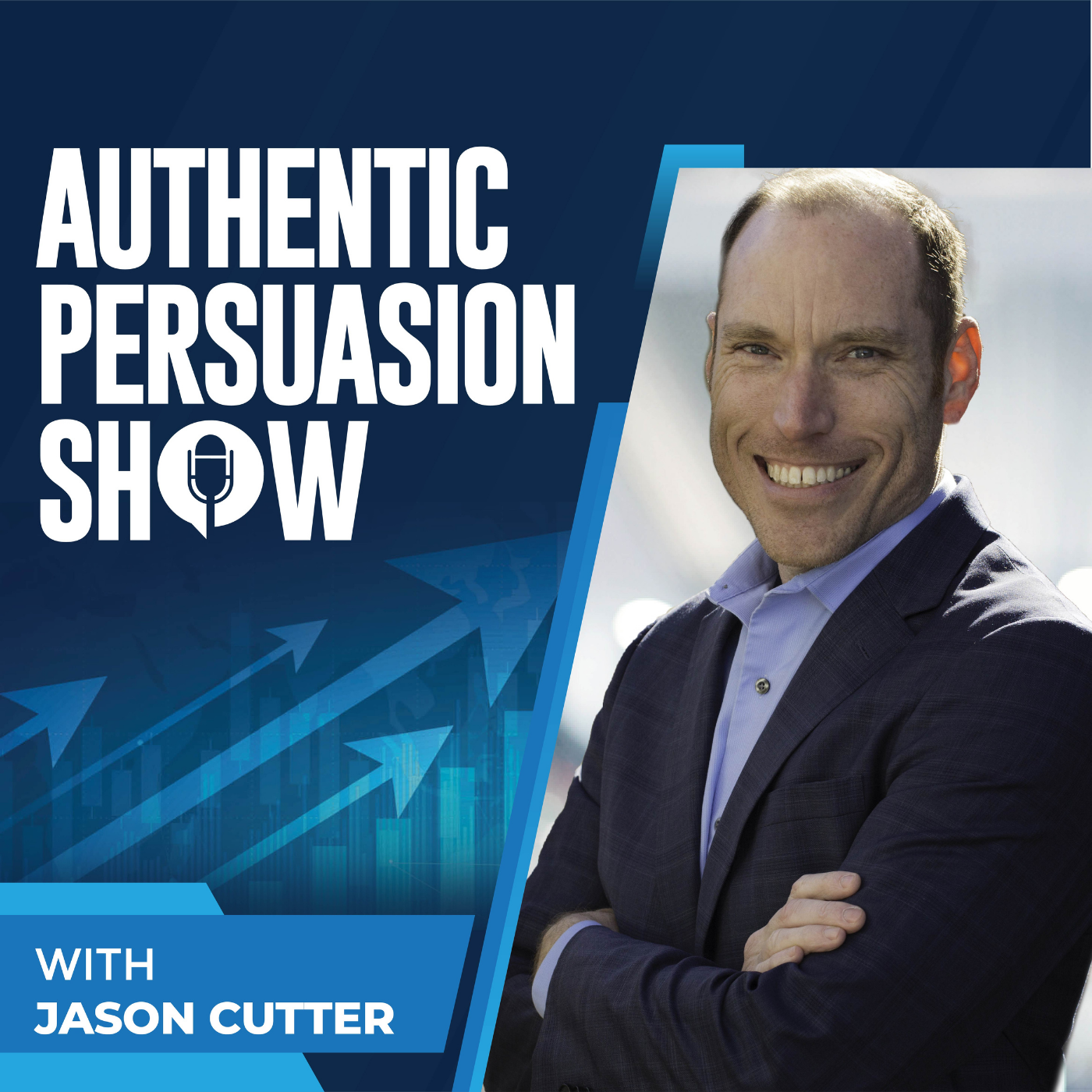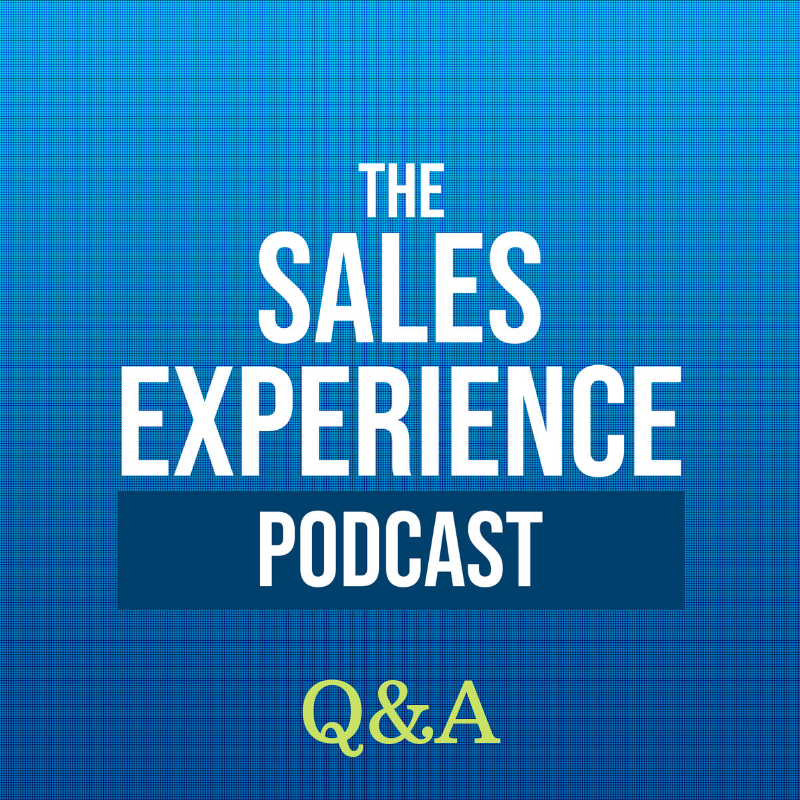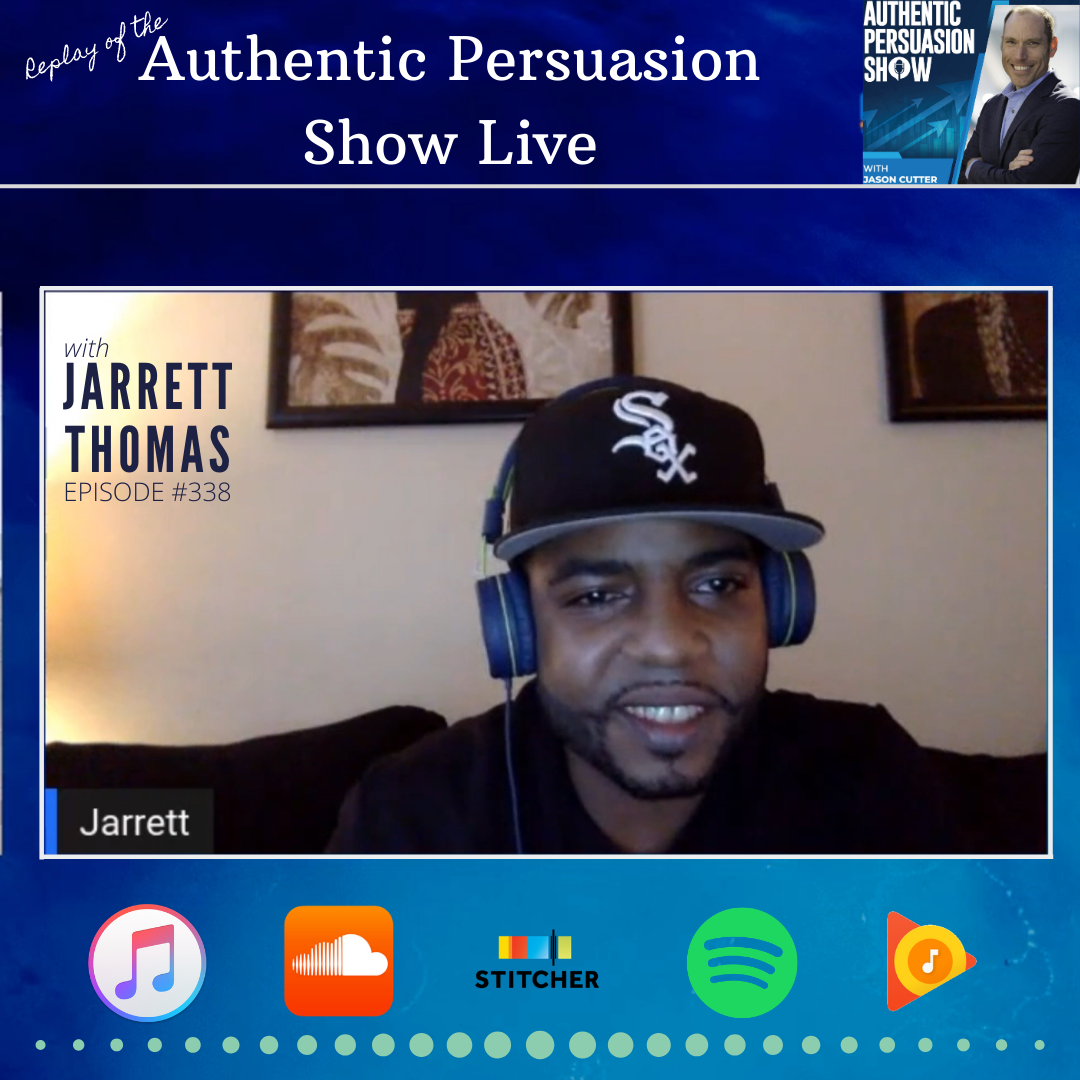Episode Transcript
Michael Ferree: I'm envisioning an inbound sales team of 50 people may be very similar to a call center. I imagine the persuasion part can be somewhat scientific with scripting.
The authentication part. It's more of an art. How would you keep a team of that, size continuing trying to be authentic? Because that's a very colorful sort of thing that, people have to, adjust to. I would think that, they become robots, and they'd be, they start to, sound like they're not authentic in what they're saying.
Jason Cutter: And that generally happens to anybody who gets into a sales role or any role where they've been doing it for a long time. They end up. They're saying the same things in the same way all the time. They get desensitized to the prospect and their life and their concerns, and what's going on with them because they've just heard it all air quotes.
They've heard it all before and they've seen it all before and they just, either they don't care or they just know it doesn't matter because I'm just going to do my thing anyway. Really the authentic piece is partially. Just the journey of understanding who you are, what your strengths, your talents, your abilities, your experiences, where you've been, how that fits into your conversations with sales and how that, is actually a tool to use.
Like I said, and I've been saying this a lot to people recently, but like I'm a hot mess on paper and with my background. But that background makes it so that I can even have a conversation with someone like yourself or, random sales calls or train somebody because like I've been there and I've had enough experiences and that's what actually is more authentic for me.
And people appreciate that when you look at, when you're talking to someone who's in sales, you want to just know they're a human. They're another person. They're trying to help you. Everyone's going through something. It's life. And then, the authentic piece for salespeople is, what are you afraid of?
What's keeping you from being successful? Why that we all have a primal part of our brain that's still, stuck in a cave or on the Savannah thousands and thousands of years ago, fighting for survival, and it's just afraid it wants to keep you safe. And then that's where I have a lot of people also get in touch with why they want to be successful.
So what would they put on a vision board or build a vision board at their desk so they can see what is it that they're striving for? Why do they want to be successful versus, just making calls and trying to close deals? Why do you actually want to do it? Cause once you connect to that, then the rest of it's easier.
Michael Ferree: Yeah. I that's you went right into my next question because motivation is obviously key too. It's, how do I stay motivated? And then I think that's a reflection of authenticity as well. A hundred percent. And so I was going to ask you, so what are those tips to stay motivated?
And you bring up the why, and I remember early on in my career, we had a really great leader, sales leader that would lead a hundred plus LOs. And one of his big things was what's your why, right? And we hear that all the time, with people, but really having whatever that is to be the driving force of what you're doing.
So you use that same core belief.
Jason Cutter: A hundred percent, because the classic way it's done in sales organizations and teams is the carrot. And or the stick, right? It's, if you close deals today we need to hit our numbers. So I'll give you 100 or 500 or 1000, whatever it is for that industry, right?
I'll give you 5, right? Sometimes that's the big bonus for the day. I'll give you 5 if you hit this or I'll buy you lunch. Great. Okay. Tomorrow comes. Okay I'll give you 5 if you hit your numbers today. You did that yesterday. So now what are you going to do for me? Because it's got to get bigger and then it's got to be a TV.
Then it's got to be a trip to the Caribbean. And then it's got to be a trip to the moon. Like it just doesn't stop. It always has to be a bigger carrot and also the stick, right? The stick has to get bigger. Do this or else do this or else. Okay, now you're fired. And then you just run out of people to fire.
And so as a salesperson. And in life, I, a lot of this, obviously we're talking about sales and lead generation and just the whole, that, that whole business, but a lot of it's just life in general is what is intrinsically driving you to get out of bed and be successful, whether it's money or not. Like for some people, it's clearly money and what that represents as a great scoreboard indicator.
Some of it's what money's going to buy for. Is it security? Is it, ego? Is it, trips, vacations, whatever that might look like, the more you're in touch with that and the bigger that is in your mind and the more energy it has, like you look at people who are wildly successful, a lot of times they're coming from places where they had nothing as a kid and so that energy in their mind of why Want to be successful is so that they never have to live that life or their kids don't have to grow up like they did.
That energy is so powerful. You just see those people just flying through brick walls, like nothing will stop them because it's so powerful. And whether you've had that childhood or that life or those experiences or not, everyone has something that will motivate them enough to just push through barriers.
Michael Ferree: Do you think, what is that, personality test that people take for jobs?
Jason Cutter: There's Myers Briggs, there's this test. Yeah.
Michael Ferree: Do you think that there are people that are just in a salespeople and those are the people that should be in it and everybody else should be in operations or accounting or is there something that, really even that oceanographer can pull in and become the salesperson,
Jason Cutter: So I think the first answer that comes to my mind, which, this is what I say a lot, especially on my podcast, but just in general, everything in life is sales. Okay, so obviously there's the sales title. There's having a sales job, right? So being a mortgage loan officer, and then there's everything is in sales, whether it's a, you're getting your significant other to want to see the movie you want to see, or the dinner you want to do, or it's having your manager agree with your proposal or having your team agree or, having the owner, see your side of a conversation like it's all sales and persuasion.
And that's why I think the authentic persuasion piece is important because when you're doing that. You can get way further in those conversations than when you're trying to sell air quotes. So can anybody, I think anybody can be effective in sales. And again, so I'm a testament to that as a shark tagging marine biologist.
Like again, there's no reason I should be effective, but I want it to be. And I saw where my strengths were and I stuck in those. And then I also saw where my weaknesses were when it came to sales conversations and avoid those. For example, I am by. Default nature, a very analytical person. One of the things I used to screw up in the beginning constantly in my mortgage career, cause I didn't know any better is I thought people.
Want to buy like I like to buy, which is lots of options, lots of information, making sure you don't screw up. And so I want to see everything. The worst thing for me would be making a mistake and buying the wrong thing and then feeling bad or looking stupid. Those kind of things, right? So some personalities have that fear.
Some person is have the fear of missing out and they don't care what they're doing as long as they're not alone. And so what I used to do was. I would, back in, early two thousands, there was a ton of mortgage options. And so I would put together a spreadsheet with 10 different options.
So a 30 year first and a fixed second and an adjustable first with a fixed second, 80 twenties, 80 fifteens, 80 tens. And I would have this and I would hand it to them. And I'd be so excited. I'm like, here you go. This should make you feel good about what you're going to pick. I'm on your side. If I was shady, I would just tell you what to do, but I don't care.
And then nobody would buy. Cause I put them in analysis paralysis and that too many choices. It was terrible. I didn't realize it like I was doing it wrong from a persuasion standpoint. And so I think if you have those tendencies, you have to be really careful about what you do in your sales role, because what happens a lot, and this kind of goes into your question, which is.
Most people default to treating other people like they want to be treated, which is good if it's the golden rule and it's respect and empathy and care. And I hold the door for you because that's respectful. That kind of feeling and interactions in the world is important in sales. It is a killer of sales careers.
It will be the death of your sales career. If you treat everybody like you like to be treated as a customer.
Michael Ferree: Okay. So the next easy follow up question is how do you identify what that prospect, how they want to buy?
Jason Cutter: Usually you want to set up your questions so that you can ask them questions. And then it's really, this is the hardest part for a lot of people these days, it seems is.
Actually listening. So active listening to what they say and what they're in need of and understanding personalities and behaviors. So whether it's Myers Briggs or disc or other things like that, I use one that's very similar to disc, but with easier terms that makes sense for me and what I train on, you've almost if you're going to be in sales and you're going to commit to that, And again, just life in general, you really want to be a student of psychology and behavior and personalities and other people reading different books.
The five love languages is an amazing book, especially if you want to be in sales where it seems weird. That's a whole nother topic. We could go on, understanding four main personality types from a disc test. And then seeing how those come up in a conversation where we're talking about it and someone's asking questions about stats and numbers, or is somebody asking questions about who else is using this?
And are they enjoying it? Is it working for them? That person wants the validation and the social proof and their fear of missing out is their big thing. If you give that person spreadsheets, they will hang up on you because that is their big thing. Fate worse than death is spreadsheets and numbers and they just want to have fun.
And so just make it fun. Whatever it is, you've got to make it fun.
Michael Ferree: Yeah. Okay. So I the process we keep digging and I keep thinking of the process of sales and going through and I go, okay, now I've got that. The next challenge that, salespeople have is the rejection, right? The negative things that come along with being in sales and the nose and all this sort of stuff.
Yeah, that's tough. And that goes back to motivation and all this sort of stuff. How does, I'm sure there's no magical bullet to be able to handle rejection, but what's your take on how maybe salespeople should look at it?
Jason Cutter: There's three things that I always focus on when that topic comes up or we're doing training.
So I'm glad that you asked because that one's huge, right? So that's a part of sales. It's a part of life.
![[Replay] Lead Generation World, with Michael Ferree](https://episodes.castos.com/salesexperiencepodcast/images/Lead-Generation-World-.png)


